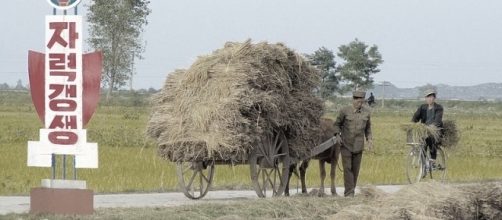The UN Food Agriculture Organization (FAO) has indicated that due to poor rainfall, North Korea is facing a drought situation. It could be worse than the one witnessed in 2001 and could result in a possible shortage of food. The situation is not likely to improve unless there is adequate rainfall in the main 2017 cereal production season.
The country went through a prolonged period of dry weather between the months of April to June which is the important growing season. This has, in turn, affected production of rice and maize which are staple crops.
From the standpoint of FAQ, the world cannot remain a silent spectator. Countries should send humanitarian aid to mitigate the sufferings of the people.
The ground realities
CNN reports that if the drought conditions continues, it would lead to loss of food security in North Korea. The country is living in isolation and has not yet come out of the deadly famine it faced in the late 1990s. An estimated two million people died in the period 1995 to 1999 from that famine and tons of food aid was sent from countries around the world, including the United States, to check the spiraling death toll.
The UN's World Food Program has made a shocking revelation that majority of North Koreans do not get proper food.
The main cereal producing areas have received rainfall which is below the level of 2001 and the problem aggravates when monsoons begin and there are floods. FAO has said that natural disasters take a heavy toll on North Korea and it should take measures to protect itself against climate change. FAO also wants countries to rise to the occasion and send assistance in the form of irrigation equipment and food aid.
Will the United States step in?
It may be recalled that, in 2012, the Obama administration had extended a helping hand in the form of humanitarian aid to North Korea. The U.S. had struck a deal with Kim Jong-un to send tons of food assistance provided it put a stop to its nuclear activities. However, it did not materialize because of the insistence of the Kim's government to go ahead with its plans to develop missiles.
Incidentally, the US also provided food assistance to North Korea in 2016, according to a report by VOA News.
President Donald Trump is now in the chair and he wants to neutralize the looming threats of a nuclear attack from North Korea. He has impressed upon the Chinese President to intervene and exert pressure on the regime through control over its economy. The United States has an ally in the President of South Korea who wants to improve relations with the North. Under the circumstances, the Trump administration could repeat the previous offer of extending humanitarian aid in the form of food supplies. It could step in and become the savior of the drought stricken country.


